This Is Us: White Americans Can't Distance Themselves from Charlottesville
Pretending our country isn't racist gives cover to dangerous extremists.
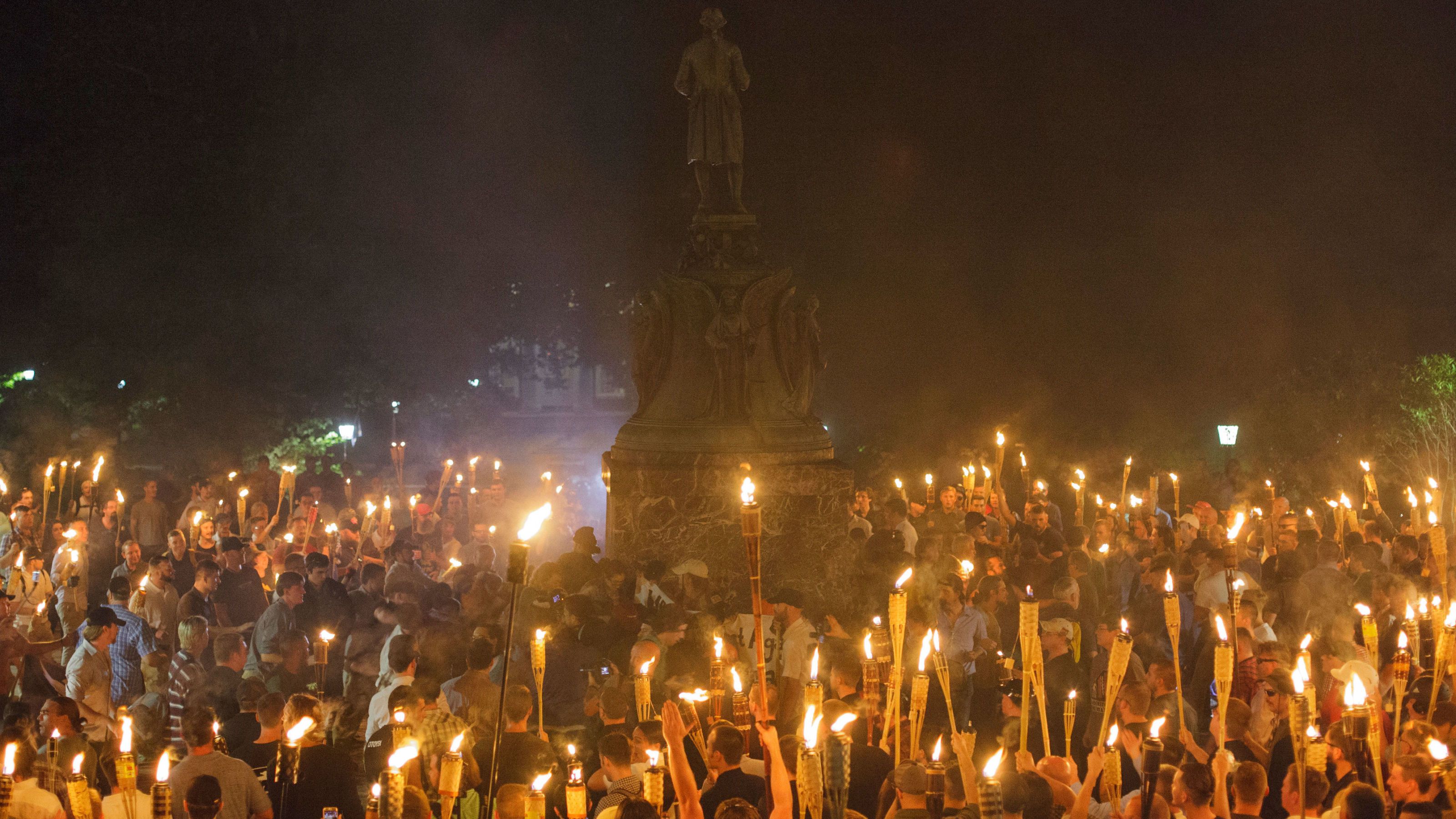

One of feminism's greatest contributions to society was convincing the American public that rapists are not ominous figures hiding in the bushes, but men we know—our friends, sons, teachers, and pastors. That shift in our mainstream understanding of sexual assault was necessary to end the social cover given to perpetrators of sexual violence. We needed to know that people do horrible things, even the people we love.
So as the country reels from the attack in Charlottesville, Virginia, let's not forget that lesson and claim that racists are anomalies or outliers. Despite well-meaning reactions and hashtags to the contrary, this is who the United States is. Of course this is us.
[pullquote align='C']"This country was built on systemic racism and continues to engage in a self-serving revision of racist history."[/pullquote]
The pictures out of Charlottesville—angry white people, mostly men, carrying torches in the middle of the night, faces distorted by hate—are nearly indistinguishable from historical images of racist Americans over the years. They can call themselves "white nationalists" instead of "white supremacists" but let's be real: They look the same because they are the same. This country was built on systemic racism and continues to engage in a self-serving revision of racist history. That core of who we are has not shifted nearly as much as we would like to believe.
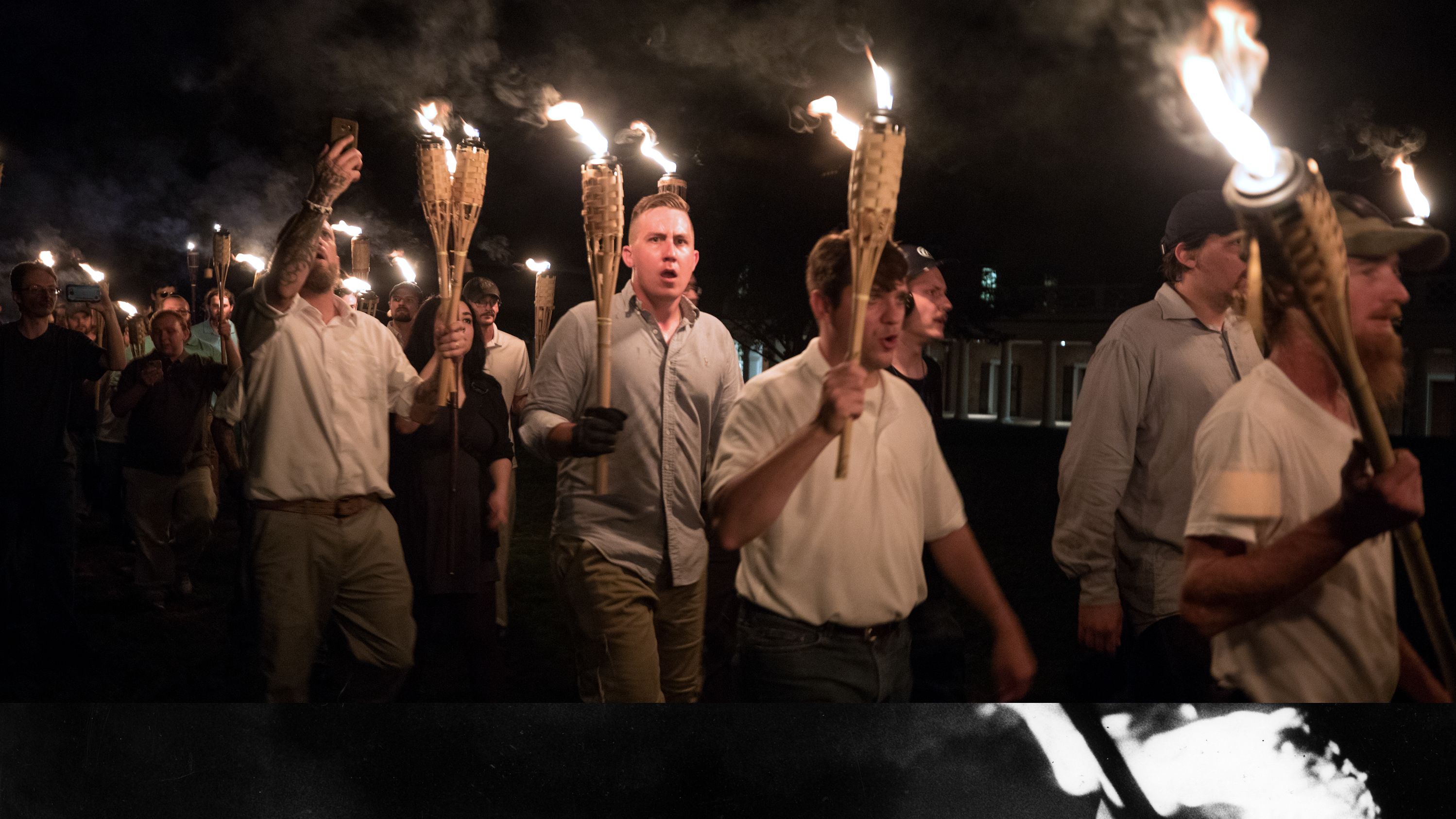
It's comforting to insist that racial hatred is not who Americans are, but at best it excuses white apathy—we don't have to interrogate our values if they're fine as is. At worst, it provides dangerous cover to violent racists.
Consider Peter Cvjetanovic, a college student whose image went viral this weekend, insisting that he's not "the angry racist they see in the photo." Or the mother of James Alex Fields, the man arrested for killing 32-year-old Heather Heyer after plowing his car into a group of counter-protesters; she told reporters that she didn't know her son was going to a white supremacist march: "I thought it had something to do with Trump." Fields' former teacher, though, says "he was very big into Nazism...he really had a fondness for Adolf Hitler."
ALSO BY JESSICA VALENTI
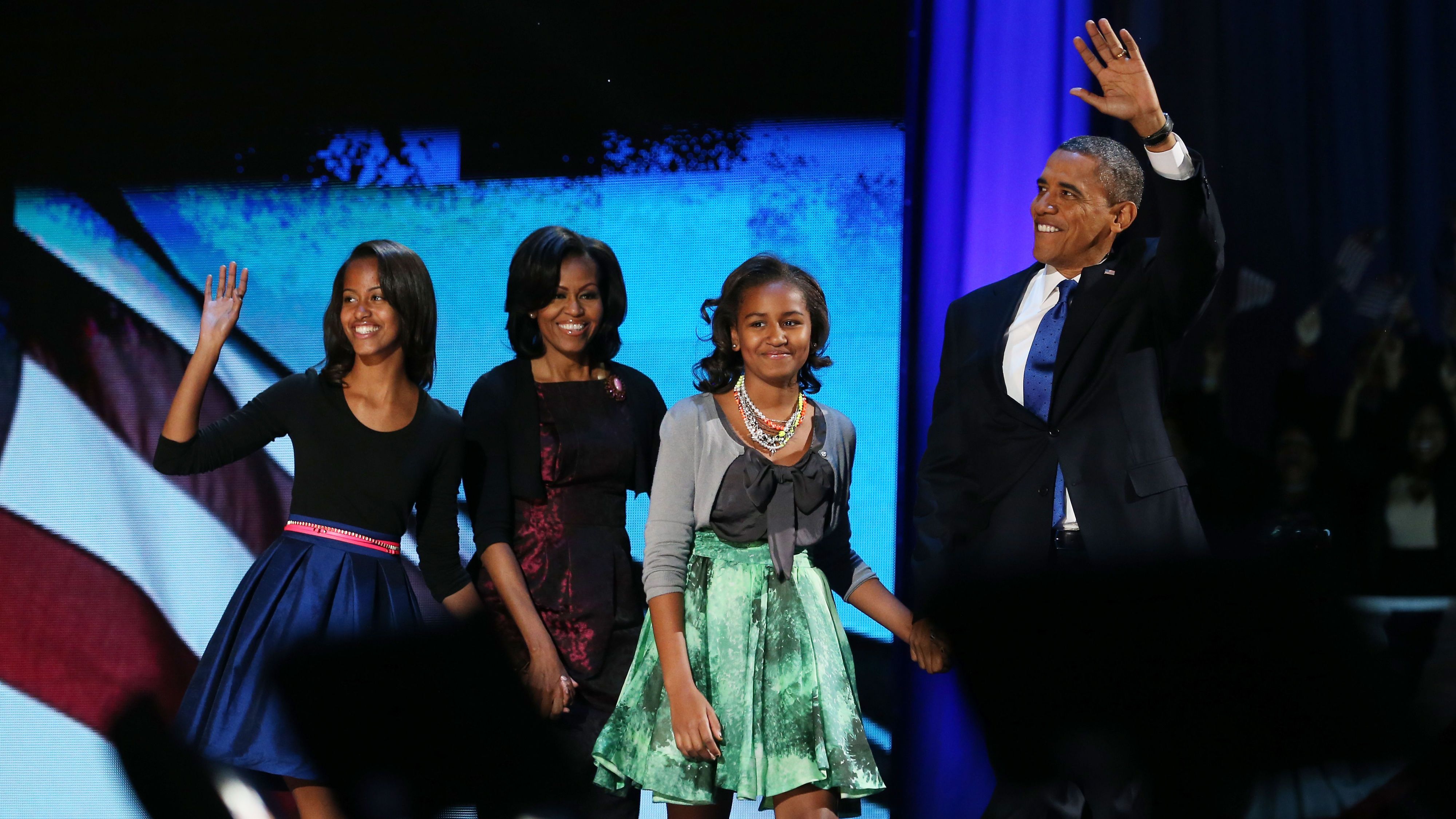
We Hold Sasha and Malia Obama to a Higher Standard Than the Trump Children, and That's Ridiculous
ALSO BY JESSICA VALENTI
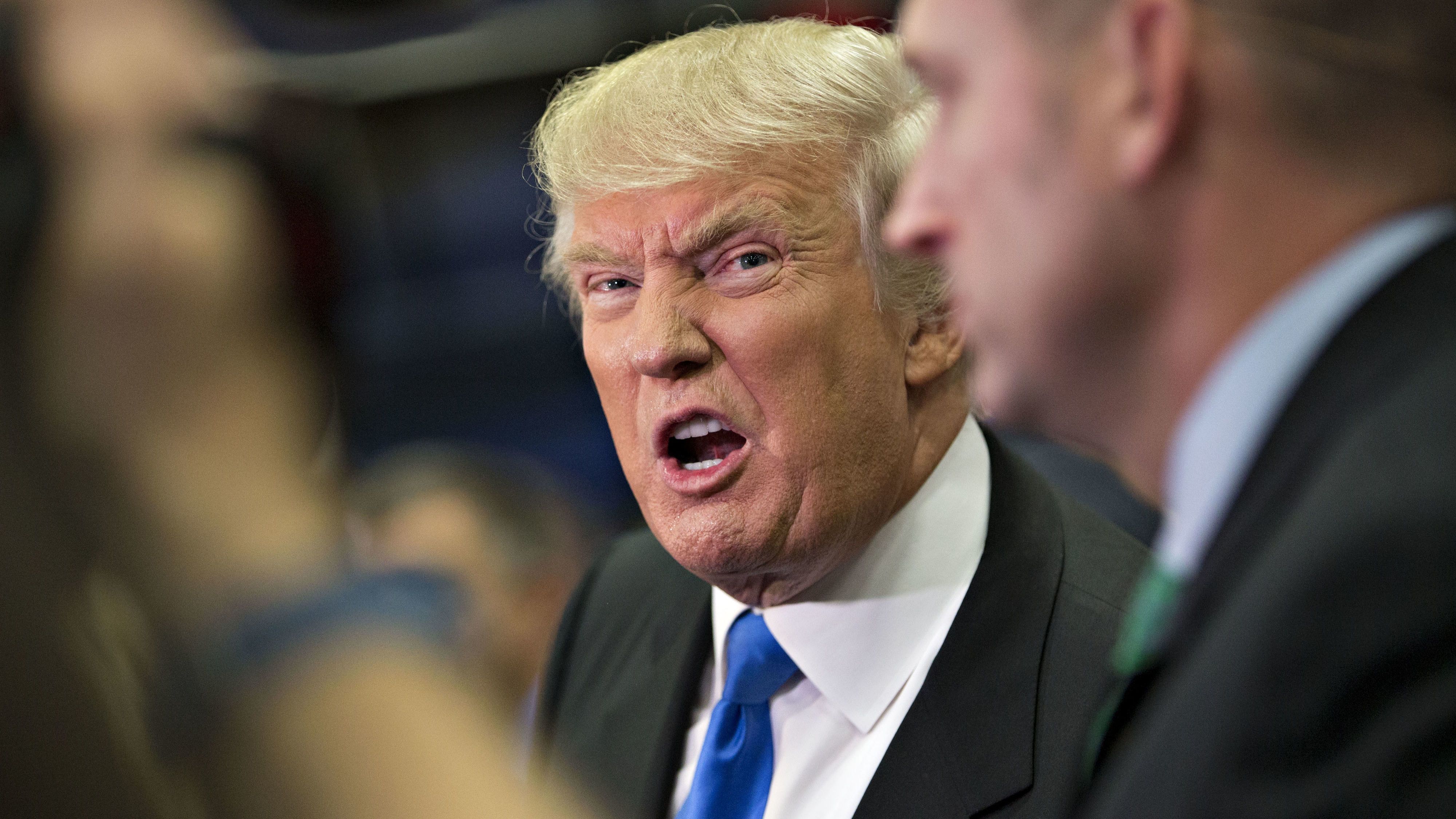
Why Trump Is So Afraid of Trans People
ALSO BY JESSICA VALENTI
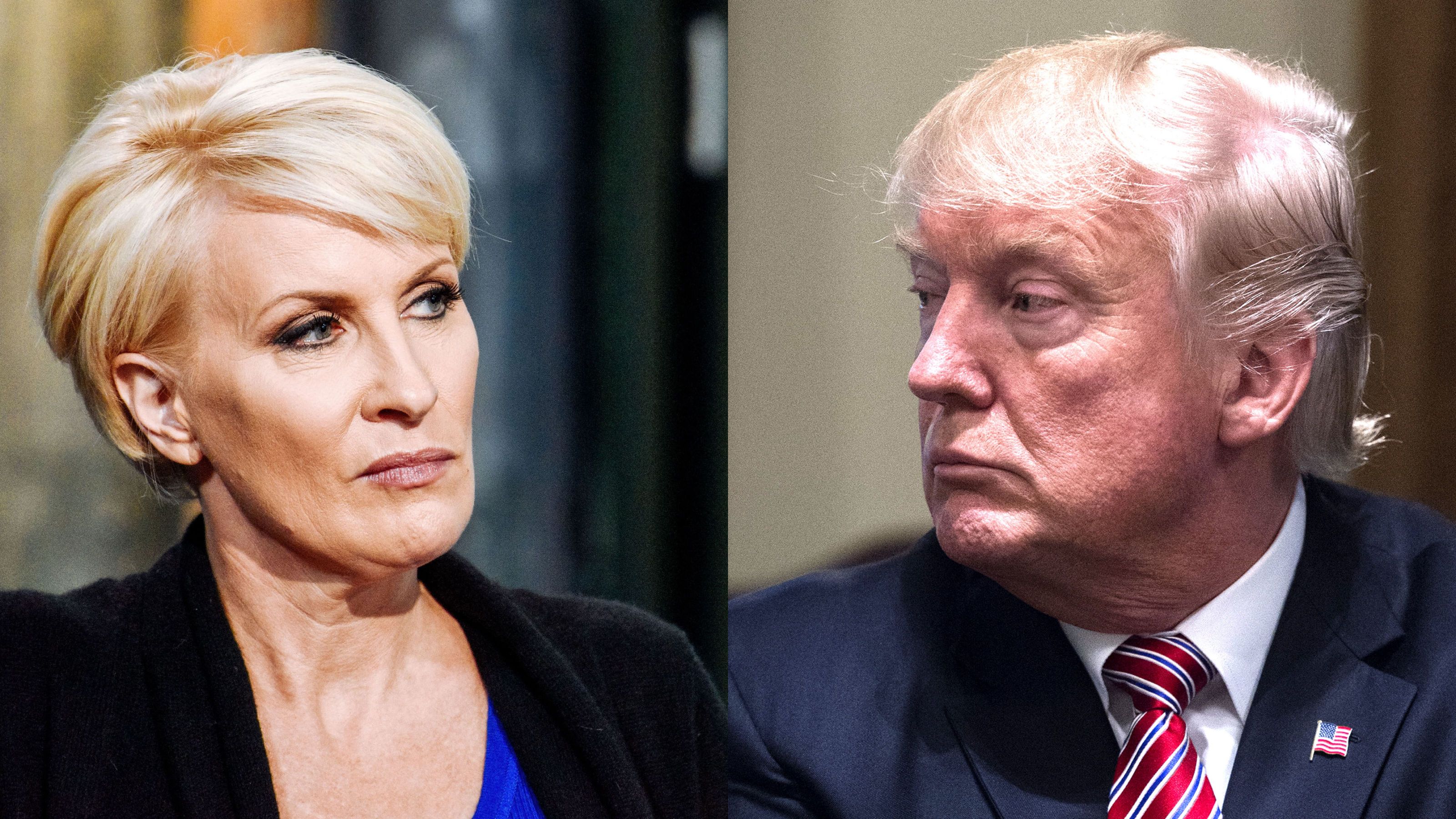
Trump Doesn't See Women As People, and That's Why This Keeps Happening—and Will Continue to Happen
Are we really to believe that Fields' mother didn't know who he was? That Cvjetanovic doesn't recognize his own racism? Or have white Americans so completely distanced ourselves from how ordinary racism actually is that we don't see it even as it stands beside us?
Stay In The Know
Get exclusive access to fashion and beauty trends, hot-off-the-press celebrity news, and more.
It's the same blind reaction that claims connecting the Trump administration to the racist violence in Charlottesville is an unfair conflation rather than a reasonable connecting-of-dots. We have a president with a long and clear history of racism: His family company was once investigated for refusing to rent property to black Americans. He launched the birther campaign against President Obama. As a candidate he stoked racial hatred with derogatory comments about Mexicans and Muslims; as president he's filled his administration with men who have widely criticized records on race, called for a Muslim ban, and refused to call out white supremacism by name until forced by public outcry.
[pullquote align='C']"Have white Americans so completely distanced ourselves from how ordinary racism actually is that we don't see it even as it stands beside us?"[/pullquote]
So yes, racism absolutely is American. It pervades our homes, our streets, and our government. Not in the past, not as some ephemeral evil—but now, everywhere.
The Republican party and those who voted for Trump want to insist that they are not part and parcel of the extremist violence we saw in Charlottesville. They rush to tweet out condemnations and distance themselves from men carrying torches—as if their support of Trump did not provide the fire.
We cannot end racist violence and white supremacy without telling the truth about who we are and what we've enabled. This is us. But it doesn't have to be.
Jessica Valenti is a contributing editor to MarieClaire.com—read her weekly column here.
Jessica Valenti is a columnist and author of five books on feminism, politics, and culture. Her latest book, Sex Object: A Memoir, was a New York Times bestseller. Valenti is also editor of the ground-breaking anthology Yes Means Yes: Visions of Female Sexual Power and a World Without Rape and the founder of Feministing.com, which Columbia Journalism Review called “head and shoulders above almost any writing on women’s issues in mainstream media.” She has a Master’s degree in Women’s and Gender Studies and lives in Brooklyn with her husband and daughter.
-
 James Middleton Shares Why He Was "Breathless and Flustered" During Meeting With Queen Elizabeth
James Middleton Shares Why He Was "Breathless and Flustered" During Meeting With Queen Elizabeth"I heard a snort of laughter and looked past the Queen to see everyone in the room stifling their giggles."
By Kristin Contino
-
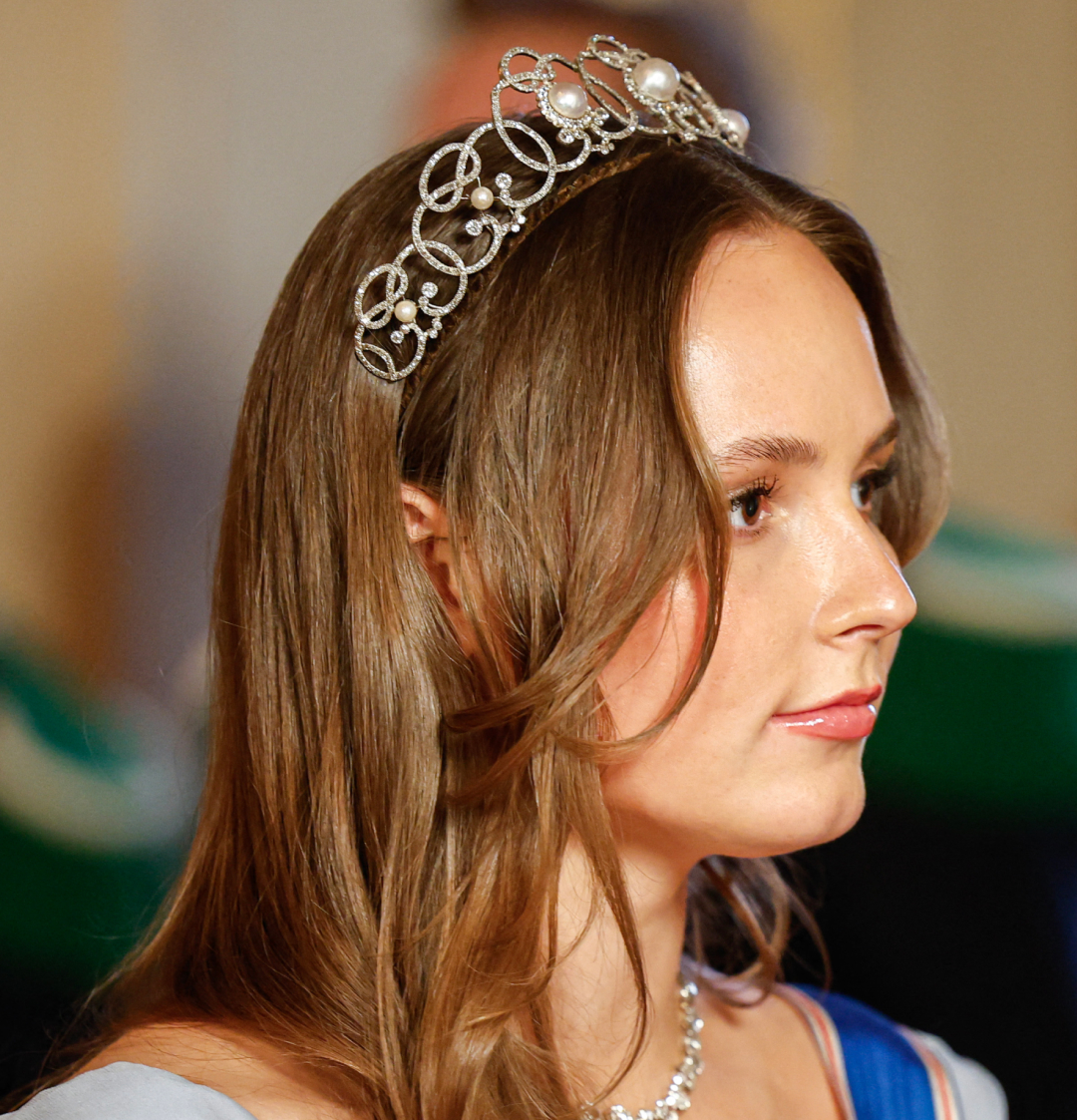 This Modern Princess Will Break a 600-Year-Old Tradition When She Takes the Throne
This Modern Princess Will Break a 600-Year-Old Tradition When She Takes the ThronePrincess Ingrid Alexandra of Norway will follow in a long-ago ruler's footsteps.
By Kristin Contino
-
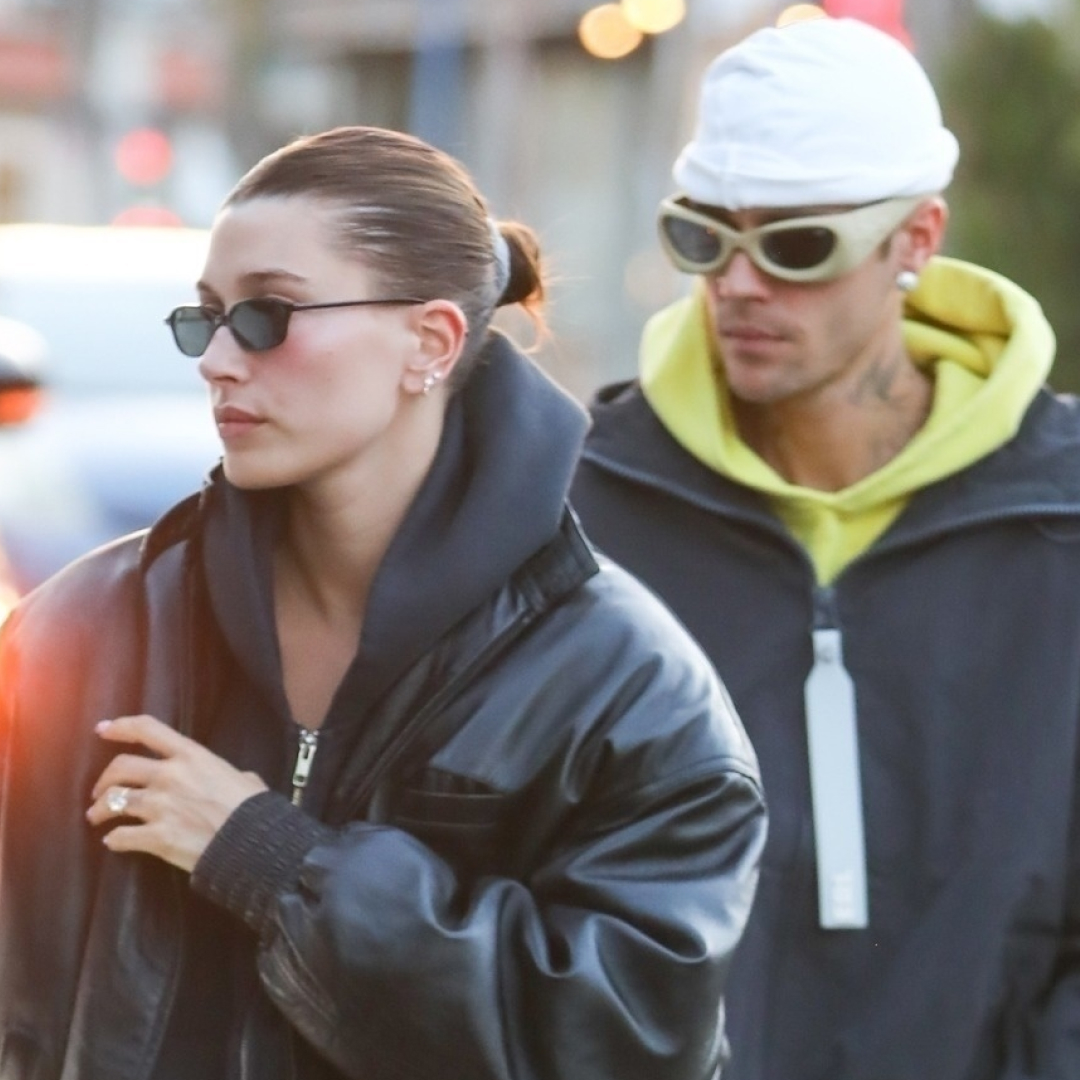 Hailey Bieber's "Favorite Jacket" Is Actually One She Designed
Hailey Bieber's "Favorite Jacket" Is Actually One She DesignedIt's a piece for husband Justin Bieber's new brand.
By Halie LeSavage
-
 By Going Full "Trad Wife," Republicans Are Saying the Quiet Part Out Loud
By Going Full "Trad Wife," Republicans Are Saying the Quiet Part Out LoudSen. Katie Britt was picked to deliver the State of the Union rebuttal "as a housewife, not just a senator," one GOP lawmaker said.
By Danielle Campoamor
-
 36 Ways Women Still Aren't Equal to Men
36 Ways Women Still Aren't Equal to MenFeatures It's just one of the many ways women still aren't equal to men.
By Brooke Knappenberger
-
 How New York's First Female Governor Plans to Fight for Women If Reelected
How New York's First Female Governor Plans to Fight for Women If ReelectedKathy Hochul twice came to power because men resigned amid sexual harassment scandals. Here, how she's leading differently.
By Emily Tisch Sussman
-
 Why the 2022 Midterm Elections Are So Critical
Why the 2022 Midterm Elections Are So CriticalAs we blaze through a highly charged midterm election season, Swing Left Executive Director Yasmin Radjy highlights rising stars who are fighting for women’s rights.
By Tanya Benedicto Klich
-
 Tammy Duckworth: 'I’m Mad as Hell' About the Lack of Federal Action on Gun Safety
Tammy Duckworth: 'I’m Mad as Hell' About the Lack of Federal Action on Gun SafetyThe Illinois Senator won't let the memory of the Highland Park shooting just fade away.
By Sen. Tammy Duckworth
-
 Roe Is Gone. We Have to Keep Fighting.
Roe Is Gone. We Have to Keep Fighting.How To Democracy always offers a path forward even when we feel thrust into the past.
By Beth Silvers and Sarah Stewart Holland, hosts of Pantsuit Politics Podcast
-
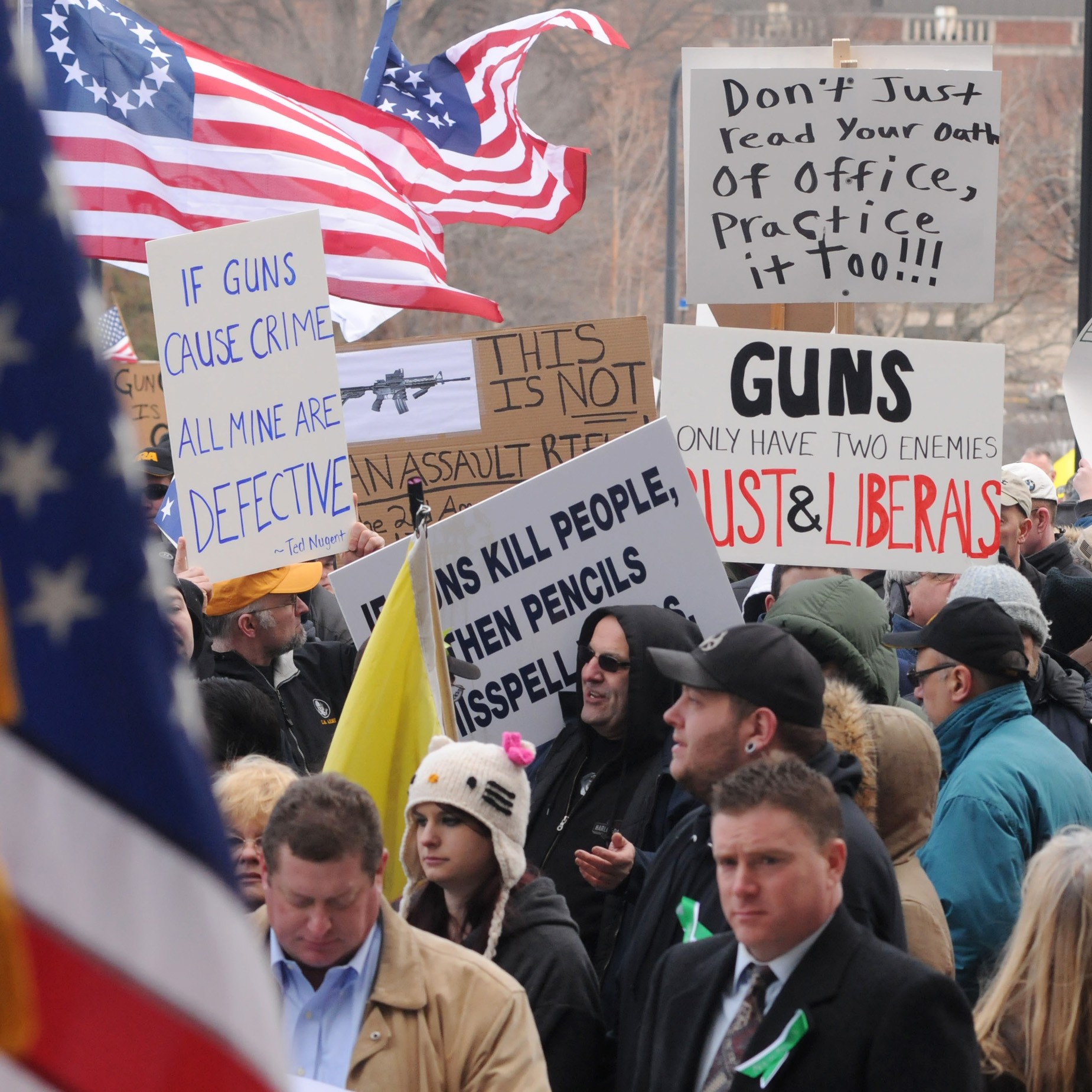 Current Gun Control Policies Are Ableist
Current Gun Control Policies Are Ableist"Solutions" like active shooter drills and arming more people put the rights of gun owners above the rights of America's most vulnerable, including disabled people like myself.
By Heather Tomko
-
 The Supreme Court's Mississippi Abortion Rights Case: What to Know
The Supreme Court's Mississippi Abortion Rights Case: What to KnowThe case could threaten Roe v. Wade.
By Megan DiTrolio